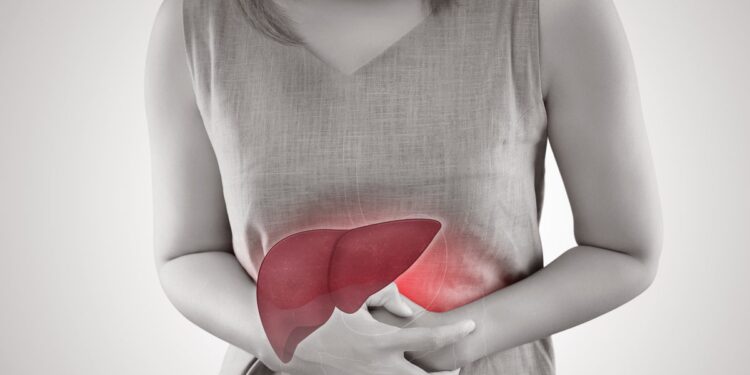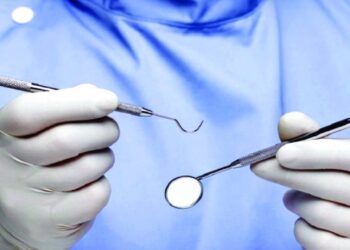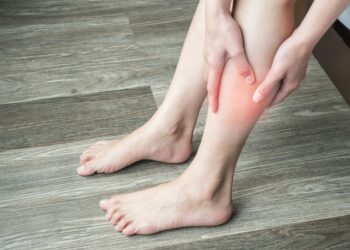Agencies-Gaza post
1 danger sign means you’ve liver disease
The liver is the largest organ in your body and it works hard to keep you healthy by performing over 500 essential jobs like removing toxins from your bloodstream, maintaining a normal level of blood sugar and many other crucial functions.
Without a healthy liver, your overall well-being is in serious jeopardy and knowing the signs of liver damage could be a difference between life and death. Eat This, Not That! Health spoke with Dr. Kimmerle Cohen, a hepatopancreaticobiliary surgeon and oncological surgery specialist with Palm Beach Health Network Physician Group and on-staff at Good Samaritan Medical Center and Palm Beach Gardens Medical Center who explained what to know about liver disease and symptoms to watch out for.
1 Why Your Liver is Such an Important Organ
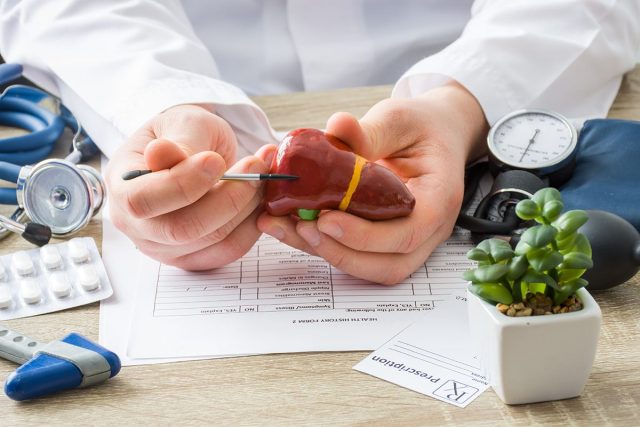
Dr. Cohen sharess, “The liver is important for several different reasons. It functions in digestion by the formation of bile, which is a fluid the body makes in order to digest fat. Bile allows us to digest fat and have it readily available for many bodily functions, as well as the creation of steroid hormones. The liver is also very important in cholesterol metabolism, as well as the function of detoxification of the blood and helps the body filter toxic substances.”
2 What Should People Know About Liver Disease?
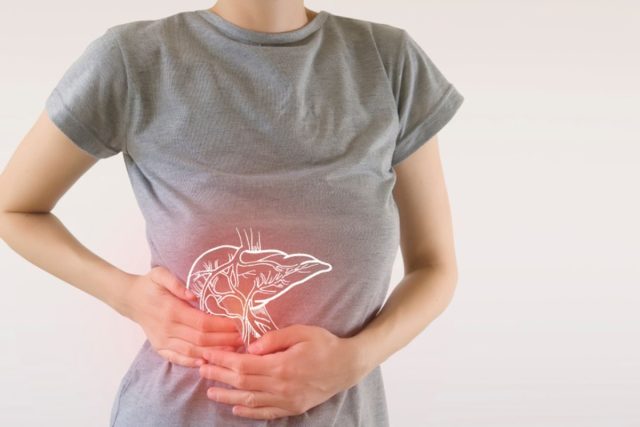
Dr. Cohen says, “Liver disease is a very severe condition that is very difficult to reverse. The best way of treating liver disease is actually to prevent it by not ingesting large amounts of calories and fat, as well as alcohol.”
3 Yellowing of the Skin or Eyes

Dr. Cohen states, “This condition, called jaundice, usually indicates there is a dysfunction with formation of bile -which can create a yellowing of the skin or eyes.”
4 Upper Right-Sided Abdominal Pain

According to Dr. Cohen, “This can be from an acute attack or an exacerbation of a chronic condition of the liver causing inflammation and stretching on the capsule of the liver creating pain. This can be a tricky sign because right upper quadrant pain can also be caused by underlying gallbladder disease or gallstones.”
5 Fatigue and Somnolence

Dr. Cohen states, “Buildup of toxic byproducts can occur when there is damage in the liver because they are not properly metabolized and disposed of. Ammonia can build up in the bloodstream and cause fatigue, somnolence and confusion.”
6 Other Signs of Liver Disease to Watch Out For

The Mayo Clinic states, “Liver disease doesn’t always cause noticeable signs and symptoms. If signs and symptoms of liver disease do occur, they may include:
- Skin and eyes that appear yellowish (jaundice)
- Abdominal pain and swelling
- Swelling in the legs and ankles
- Itchy skin
- Dark urine color
- Pale stool color
- Chronic fatigue
- Nausea or vomiting
- Loss of appetite
- Tendency to bruise easily.”
7 Who is at Risk for Developing Liver Disease?

Dr. Cohen shares, “The highest risk for developing liver disease are those who have been diagnosed with cirrhosis -either from heavy alcohol intake or abuse, or infection with hepatitis. Both alcohol and hepatitis cause inflammation within the liver which ultimately leads to damage and potentially liver cancer. In recent years, we have discovered an increase in fatty liver disease, which is an excessive amount of calories and fat within the diet. This leads to fatty deposits within the liver that can also lead to liver damage and increased risk for liver cancer.”
8 How to Help Prevent Liver Disease
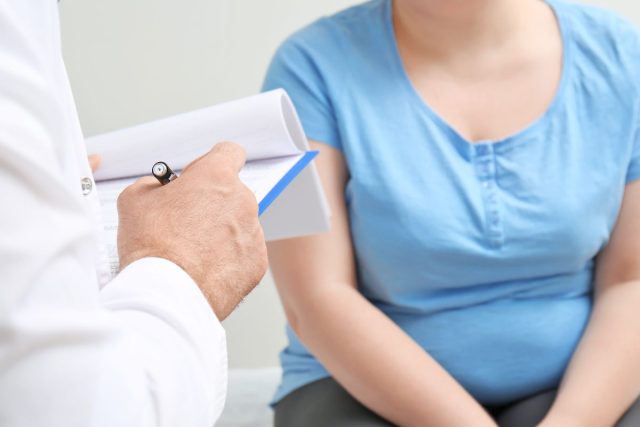
“Avoiding excessive amounts of alcohol, as well as avoiding excessive calories and fat within the diet, can greatly help the health of your liver,” says Dr. Cohen.
The Mayo Clinic says, “To prevent liver disease:
- Drink alcohol in moderation. For healthy adults, that means up to one drink a day for women and up to two drinks a day for men. Heavy or high-risk drinking is defined as more than eight drinks a week for women and more than 15 drinks a week for men.
- Avoid risky behavior. Use a condom during sex. If you choose to have tattoos or body piercings, be picky about cleanliness and safety when selecting a shop. Seek help if you use illicit intravenous drugs, and don’t share needles to inject drugs.
- Get vaccinated. If you’re at increased risk of contracting hepatitis or if you’ve already been infected with any form of the hepatitis virus, talk to your doctor about getting the hepatitis A and hepatitis B vaccines.
- Use medications wisely. Take prescription and nonprescription drugs only when needed and only in recommended doses. Don’t mix medications and alcohol. Talk to your doctor before mixing herbal supplements or prescription or nonprescription drugs.
- Avoid contact with other people’s blood and body fluids. Hepatitis viruses can be spread by accidental needle sticks or improper cleanup of blood or body fluids.
- Keep your food safe. Wash your hands thoroughly before eating or preparing foods. If traveling in a developing country, use bottled water to drink, wash your hands and brush your teeth.
- Take care with aerosol sprays. Make sure to use these products in a well-ventilated area, and wear a mask when spraying insecticides, fungicides, paint and other toxic chemicals. Always follow the manufacturer’s instructions.
- Protect your skin. When using insecticides and other toxic chemicals, wear gloves, long sleeves, a hat and a mask so that chemicals aren’t absorbed through your skin.
- Maintain a healthy weight. Obesity can cause nonalcoholic fatty liver disease.”
9 Causes of Liver Disease

According to the Mayo Clinic, “Liver disease has many causes.
Infection
Parasites and viruses can infect the liver, causing inflammation that reduces liver function. The viruses that cause liver damage can be spread through blood or semen, contaminated food or water, or close contact with a person who is infected. The most common types of liver infection are hepatitis viruses, including:
- Hepatitis A
- Hepatitis B
- Hepatitis C
Immune system abnormality
Diseases in which your immune system attacks certain parts of your body (autoimmune) can affect your liver. Examples of autoimmune liver diseases include:
- Autoimmune hepatitis
- Primary biliary cholangitis
- Primary sclerosing cholangitis
Genetics
An abnormal gene inherited from one or both of your parents can cause various substances to build up in your liver, resulting in liver damage. Genetic liver diseases include:
- Hemochromatosis
- Wilson’s disease
- Alpha-1 antitrypsin deficiency
Cancer and other growths
Examples include:
- Liver cancer
- Bile duct cancer
- Liver adenoma
Other
Additional, common causes of liver disease include:
- Chronic alcohol abuse
- Fat accumulation in the liver (nonalcoholic fatty liver disease)
- Certain prescription or over-the-counter medications
- Certain herbal compounds”
Source: here










